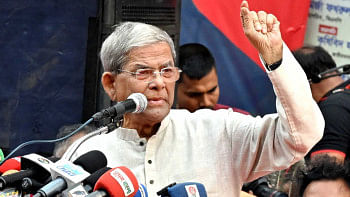Should you chase awards?

A gentleman does not. But a man not so gentle does. A genuine award from a respectable organisation becomes a thing of joy, but an award given by a shady group to a questionable character raises eyebrows. Such a questionable character is a desperate "wannabe" who wants to be seen and heard by educated and sophisticated people in society. Since he does not have the required attributes to stand in the same rank with the enlightened ones, he begins to manipulate his way into the inner circle. He is thrilled when his half-literate sycophants cheer him up as he tries to go uphill to reach the goal. But then he falls from halfway to the pits of despair, which is painful.
After attending to his bruised ego, he declares with disdain, "Those men up there are no better than me. I shall start a campaign against them on social media where I can have many of my cronies help me in my measly mission."
He approaches some television channels, run by the likes of him, and pours filth befitting his own ill worldview. Soon after, lo and behold, such a despicable and disposable character starts to get many "awards" from shady groups for "lifetime achievement" in wheeling and dealing! He sheepishly smiles at the camera as he accepts the awkward award. Now he begins to suffer from the delusion that he has become "somebody" in the midst of the minions. But there are whispers in the wind that such people spend a lot of money to "manage" an award.
On the other hand, a respectable award is a wonderful thing to happen to a deserving person in a progressive society. It may be given to a professor, physician, economist, researcher, novelist, poet, sportsman, stage performer, film or TV performer/director or to a singer. This formal recognition of one's endowments and unique talent makes the recipient happy and humble, and they accept the award with a bowed head. This recognition in turn inspires others to work harder and better.
Good awards and deserving candidates are not found in multitudes in any society. In our youth, we only knew about the Nobel Prize and the Oscar. Then we came to know about other awards like the Man Booker Prize, Magsaysay Award and some of our prestigious national awards like Ekushey Padak and Shwadhinata Padak.
As Bengalis, we take a lot of pride in the fact that as many as four Bengalis have received the Nobel Prize since Rabindranath Tagore in 1913. In fact, out of 10 Nobel Prize winners from India and Bangladesh, three come from Kolkata and one from Dhaka.
People wait the entire year to know who the recipients of this year's Nobel Prize or Booker Prize would be. And of course, in Hollywood, "This year's Oscar for best direction goes to…" is awaited with equal fervour. The Dadasaheb Phalke Award is India's most prestigious award for cinema. It is presented annually by the Ministry of Information and Broadcasting. The awardees in all categories are selected by a competent body of talented persons. They no doubt select only the deserving candidates from among a bevy of names after going through their track records and recommendations. The names are kept a secret until the last days.
One really has to work hard for many years and reach the highest level of excellence in a particular field of work to be selected or nominated. People who have gotten these awards in the past had no idea that their names were proposed to the committee. No one worthy of an award works with any thought of receiving one in the back of their head.
Recognition, awards and rewards—however small—lift up the self-confidence of workers. They motivate workers to do better and strive to reach perfection. Employee of the month is a good form of recognition introduced in some hotels and restaurants. These rewards are small in size but great for making employees happy.
So what happens when a non-deserving person gets an award? Well, nothing happens to him, but the systolic of the people who watch the man accepting the award goes through the roof. Viewers look up at the sky and mumble, "God! Why? Why him?" And then we watch the overnight metamorphosis of the unworthy recipient.
From a shy, cunning person, this undeserving man turns into a boisterous bragger in the social club. Fellow members try to invent excuses to leave the room as soon as he enters through the door.
Awards can be fun, too. In many countries, gag awards are given to office colleagues. This is done with no malice in mind, rather to generate healthy laughter. These are given to co-workers who always come in early or late or are health freaks and so on.
In the field of journalism, the Pulitzer Prize is considered as prestigious as the Nobel Prize. According to the Encyclopedia, "It recognises a distinguished example of meritorious public service by a newspaper or news site through the use of its journalistic resources, which may include editorials, cartoons, photographs, graphics, video and other online material, and may be presented in print or online or both."
The New York Times has so far won 132 Pulitzer Prizes since 1918. It has won more Pulitzer prizes than any other newspaper or organisation. A 19-member board, comprising senior editors, columnists, media executives, artists, as well as academic administrators from Columbia University, administers the prize.
We were fascinated by the story of the busting of the Watergate scandal by two journalists in the early 1970s. Journalists Bob Woodward and Carl Bernstein, through their investigative journalism, broke the Watergate story for The Washington Post that led to the resignation of President Richard Nixon.
Their hard work and taking of risks set the standards for modern investigative reporting. Both the journalists and The Washington Post were awarded the Pulitzer Prize. That particular report and its consequences were so huge that the award came to them almost automatically.
So, don't chase an award. Let the award chase you.
Shahnoor Wahid is a freelance journalist.

 For all latest news, follow The Daily Star's Google News channel.
For all latest news, follow The Daily Star's Google News channel. 



Comments